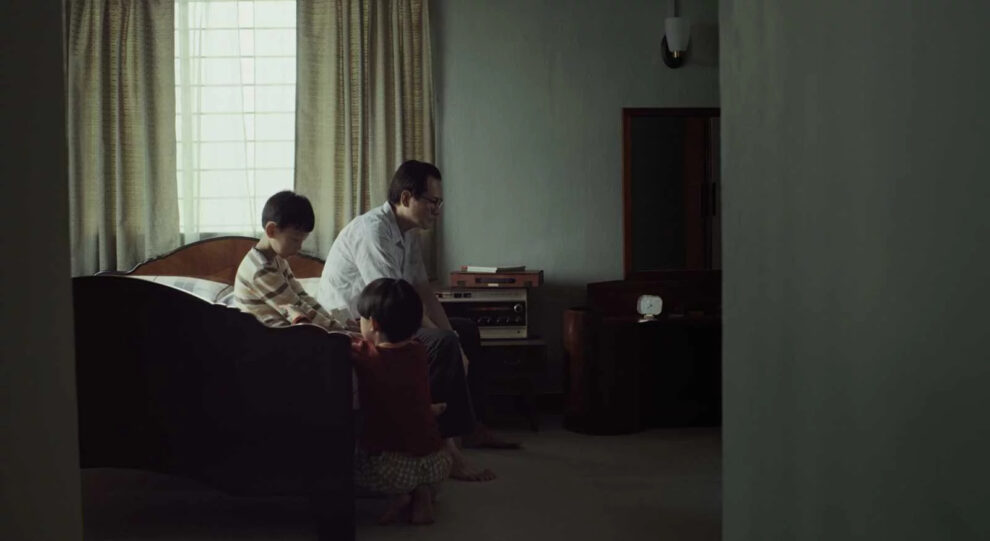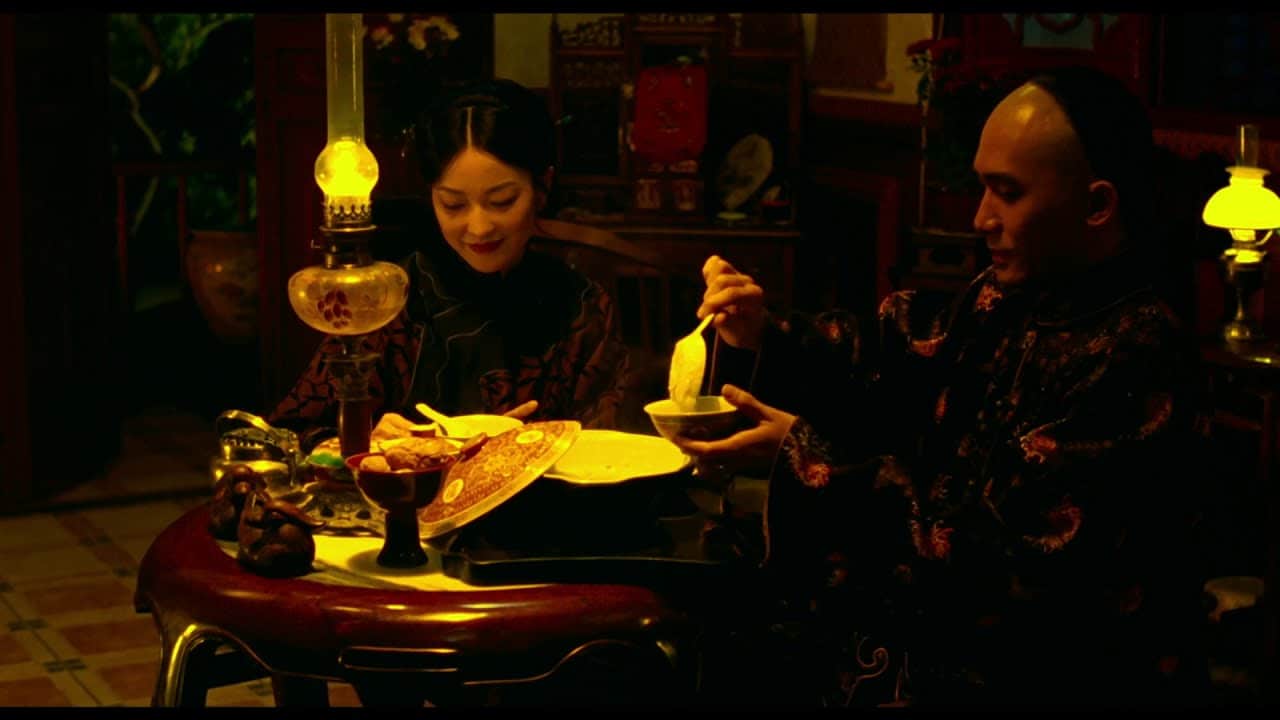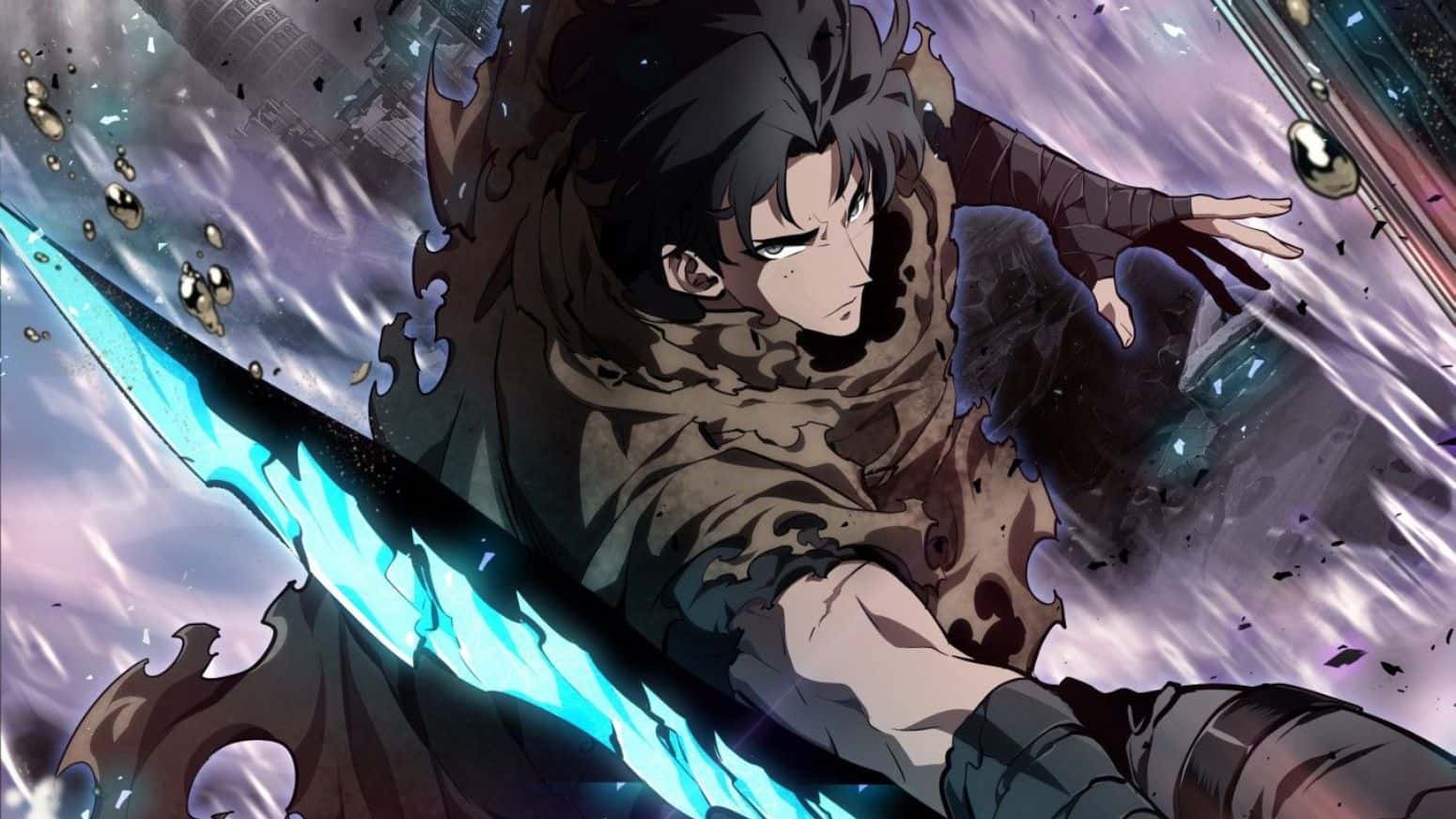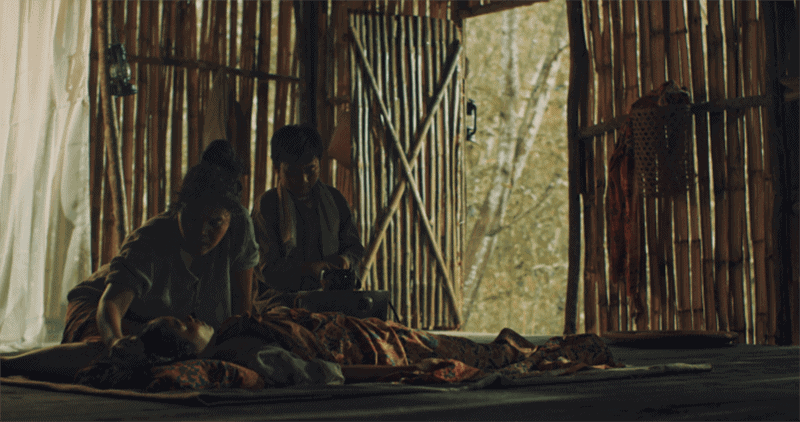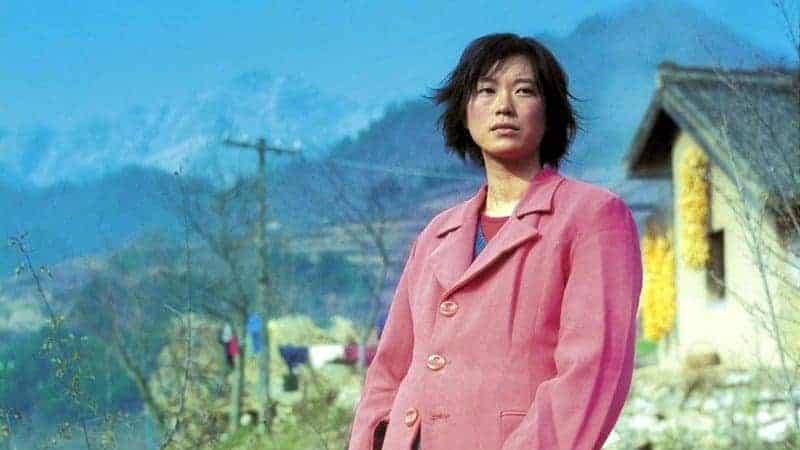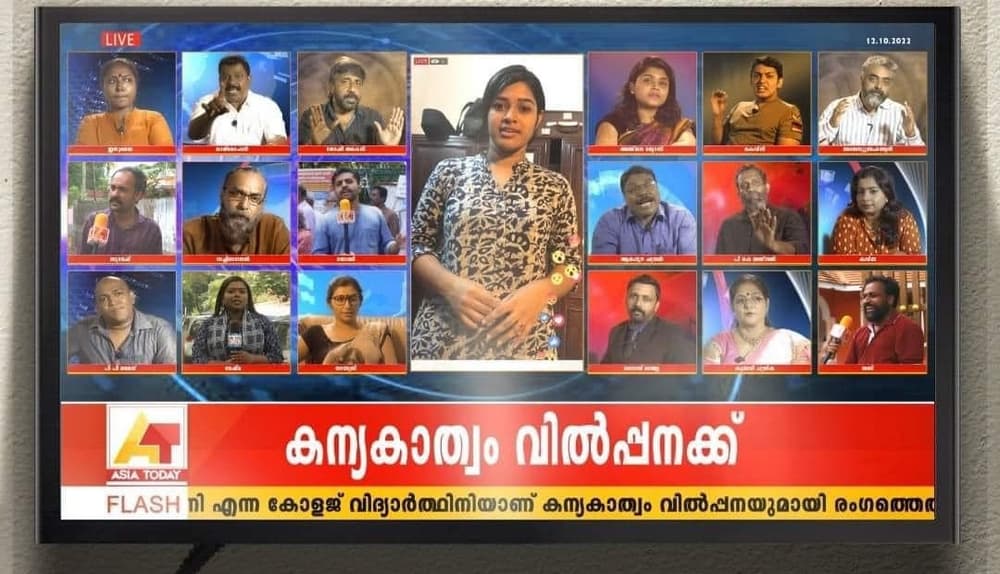By Goh Ming Siu
Fade up on a mountain of rocks in a quarry — raw material for construction, for literal nation-building, yet mining also destabilizes the land. The shot tracks along, as we hear a distant rumble – is it a storm on the horizon, far-off construction, or something more ominous? The camera comes to rest on an empty frame. The protagonist, Lim Cheng Soon (Peter Yu) and his brother Cheng Boon (Johnson Choo) rise from below, where they've been digging for rocks, up into frame.
An opening that encapsulates a film where everything important is operating under the surface, a film that needs one to excavate it for a meaningful experience. Hemingway-esque in its sparseness but also in its hidden richness and depth, much like the films of Edward Yang. We think we know what's going to happen, because we're familiar with the tropes. Yet at every turn, we're surprised by the unexpected yet utterly truthful developments.
It's a film that places trust in its audience with its elliptical, deliberate storytelling, with its richly observed, delicate and nuanced character study, with its multiple layers of meaning and symbolism. A film in which an artist has used his decades of skill and expertise, and poured his heart and soul into a deeply personal work that is astonishing in its leanness (at only 87 minutes), and laser-sharp in its focus with not an ounce of fat. A film that is a masterpiece.
And yet, also a film that is misunderstood, receiving only lukewarm reception in its home country of Singapore, where literary analysis is not a typical lens through which to view a work, especially a film.
Director's Statement by Kelvin Tong
We are what we speak.
Exploring the bond between identity and language, A Year Of No Significance mourns the loss of a generation in the 1970s when Singapore underwent a brutal and radical change in language policy. Adopting English as the official working language, workplaces saw Chinese-educated professionals left behind. Their struggles were tragic and absurd.
Previously silenced, this film now speaks for them.
What's in a Title (Or Two)?
大風吹 (The Big Wind Blows) is a game. The person who is “it” calls out a category, and those in that category must vacate the chair they're in and find another seat. With one seat short, there's always a battle for a seat, and someone inevitably loses and becomes “it” for the next round.
“大風吹。” (“The Big Wind Blows.”)
“吹什麼?” (“What does it blow?”)
“吹華校生。” (“It blows… if you're Chinese-educated.”)
That exchange isn't in the film, but it may as well be, for the Singapore government has just decided to pivot to English as the official language, and the Chinese-educated like Cheng Soon are suddenly left to flounder for their survival. Even fresh graduates from Nanyang University are scouring the classifieds and failing to get jobs; a middle-aged man like him should count himself lucky that he managed to hold on to his.
The categories in the game are arbitrary, like the wind. The wind doesn't care who you are. It doesn't care about collateral damage. It doesn't care whether people live or die. These are “Winds of Change” – the metaphorical meaning of the Chinese title. Regardless of the myriad of socio-economic reasons – entirely logical ones, to those affected, to the disenfranchised, these winds of change feel purely arbitrary at best, targeted at worst.
There are more winds of change to come for the Chinese language in Singapore after the events of the film. The closing down of schools not using English as the medium of instruction in the 1980s as a result of governmental policy changes. The ban of all other varieties of Chinese dialect apart from Mandarin from broadcasts and films – a policy which persists to this day. The abandonment of Traditional Chinese text for Simplified Chinese, an import from the People's Republic of China. It is no coincidence that the title of this film, as well as Cheng Soon's writings, are both in Traditional Chinese text.
The film begins on Lunar New Year's Eve, and charts the course of an entire year (1979), marking time through the various Chinese festivals celebrated, and finally ends on the same day a year later. Everything changes for Chinese-educated folks in that year; the winds of change throw Cheng Soon's life into chaos. But to the English-educated at the time? Why, it was “A Year of No Significance”. As Tong says: We are what we speak.
Kelvin Tong has stated that the title is also inspired by the non-fiction book “1587: A Year of No Significance” by Chinese historian Ray Huang, which theorizes how a number of outwardly insignificant events in the year 1587 could have brought about the end of the Ming dynasty in China. The events in the film also appear insignificant in the broader context, but whose end is brought about?
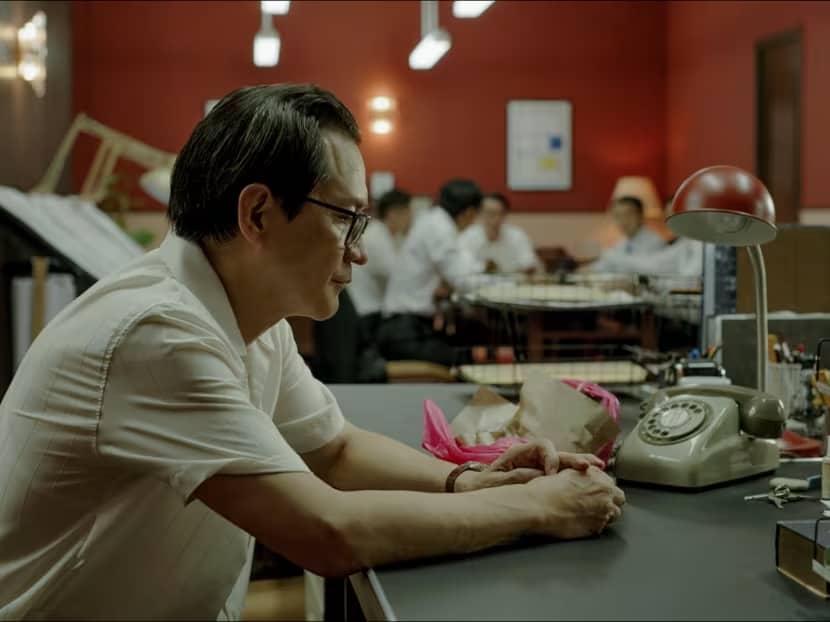
From the Family to the Land
In Confucianism, a fundamental aspect of Chinese education, a key concept in the 大學, or the book of Great Learning, can be summarized in the phrase “修身 齊家 治國 平天下”: Begin by cultivating the self, then bring order to the family, govern the state, and peace to all the land. The macro depends on, and is reflected in the micro.
Cheng Soon's father (locally-renowned veteran actor Tan Tiow Im) is, for all intents and purposes, the government in the family, for what he says, goes. His grandsons, Cheng Boon's kids, call him “Ah Gong” – “grandfather” – which also happens to be a term that some in Singapore jokingly (or not) use for the late Lee Kuan Yew, widely regarded as the founding father of modern Singapore, and by extension, the government.
Decades ago, the elder Mr. Lim hedged his bets, sending his two sons to different schools, and in doing so, sealed their fates. And today, he displays blatant favoritism to his younger son – the English-educated one – who in his eyes, can do no wrong. When the whole family visits his wife's grave on the Ching Ming Festival, Cheng Boon gets to announce his recent achievements to his deceased mother proudly, while Cheng Soon has to privately whisper his updates while he's burning paper offerings. Moving in with Cheng Soon due to his ill health, father and son's exchanges are fraught with passive-aggressive microaggressions and thinly-veiled criticism, whether it's over the takeout food Cheng Soon buys, or the old man's smoking habits. When Lim's old friend Tailor Wong (Yong Ser Pin) points out his bias, he flat-out denies it – he's the authority figure, and thus, can do no wrong.
順 (Soon) means “to accommodate; to go along with”, and like his namesake, Cheng Soon has always gone along with everything. From his father's decision to send him to a Chinese school while younger brother Cheng Boon went to an English one, to supervising work on construction sites despite being a trained architect as a result of his boss sidelining him, to desperately trying to learn English from cassette tapes in light of the new language policies. But the same word also means “smoothly”; it's a popular name for Chinese parents wishing for smooth sailing through life for their child. In his case though, it's a bitter irony.
In his profession as an architect, Cheng Soon has been a literal nation builder, contributing to the infrastructural development of the country since its independence in 1965. But now, as part of the nation-building process, he's been left behind, having to painfully, tediously translate his worksite reports word by word to English. Returning to a building he designed, his father is refused entry to the toilets. Initially impressed by his son's accomplishment, he bitterly wonders what the point in Cheng Soon's work was.
On the other hand, younger son Cheng Boon buys and sells modern products like microwaves and encyclopedias that “contain everything you want to know” – except, of course, things like Confucian concepts and values. Trade and commerce is also the new focus of the developing nation of Singapore in 1979, which is in the process of abandoning the farming industries of his father's time. Used to being the favored son, he's casually dismissive of the elder Mr. Lim's health issues, leaving the responsibility of caregiving to his elder brother, while sneaking off for trysts in a hotel with his mistress.
The family is at the center of the traditional festivals celebrated in the film over the course of the year, and most of these have auspicious foods or meals related to family reunion – from the reunion dinner on Lunar New Year's Eve, to round mooncakes during the Mid-Autumn Festival, to glutinous rice balls eaten on the Winter Solstice. Yet, more often than not, the Lim family's celebrations are marred by the lack of reunion or reconciliation. Cheng Soon's teacher wife Siew Fun (Mandy Chen) is conspicuously missing during that first reunion dinner; he claims she's in Malaysia visiting relatives. As the elder Mr. Lim undergoes emergency surgery on the Mid-Autumn Festival, Cheng Boon's wife Bee Hian (Chue En Jye) interrogates him over suspicions of an affair. Nearby, Cheng Soon helps his nephews with their lanterns, which are both in auspicious designs – a dragon and a fish. The Winter Solstice brings a confrontation between husband and wife when Cheng Boon's mistress turns up in person. Uneaten bowls of glutinous rice balls sit on a counter next to a little fish, displaced from its fishbowl, and dying before our eyes.
In a period film, everything that we see is intentional and deliberate. Production designers had to conceptualize all the sets, art department personnel had to create or source for era-accurate items, costume and makeup personnel had to put everyone in period-appropriate clothing and hairstyles. Everything that's in the frame, all of the environments, they're part of the visual worldbuilding; there's no such thing as an accident (barring the occasional stray cat wandering into the shot).
At Changi Beach, a group of Chinese orchestral music lovers hum in unison the tune《彩雲追月》(Rainbow Clouds Chasing the Moon). A graceful melody that evokes the wondrous sight of the Immortals of myth riding colorful clouds to the Moon Palace, it's taught by Siew Fun to her students as Cheng Soon secretly watches nearby, and he also later plays it to distract his nephews as their parents fight. But here, at the beach, it becomes a forlorn lament for the demise of the group's cherished publication. A motorboat forcibly inserts itself into the scene behind them, a force of modernity, industry, trade – cutting across the screen in a visual and aural assault, utterly dismissive, utterly disruptive. There's no place for traditional music in this new world they're living in.
Cheng Soon stares at his father, in a wheelchair a distance away. He's had enough of the old man. Enough dismissals. Enough clashes at home. Enough of being mistaken by Lim senior for his brother in a pain- or drug-induced haze, even though he's been the silent caregiver all this while. Of enduring the humiliation of having to pretend to be Cheng Boon just to get the old man to eat the anchovy porridge he made. As Cheng Soon contemplates, a Singapore flag is reflected in a car window beside him, fluttering in the uncaring wind. If he leaves this place, if he abandons his father, perhaps he could be happy. But the Confucian value of filial piety has been firmly instilled in him. No matter how much he resents the old man, resents the country that has turned its back on him, he cannot bring himself to leave. He returns, and remains trapped.
A Classic Tragedy
Cheng Soon is very much a man of his times, with a Chinese education steeped in the Confucian 四維八德 (Four Cardinal Principles and Eight Virtues): 禮、義、廉、恥 (Ritual, Righteousness, Integrity, Shame) and 忠、孝、仁、愛、信、義、和、平 (Loyalty, Filial Piety, Benevolence, Love, Honesty, Justice, Harmony, Peace). Early on, he refuses to turn a blind eye to a worksite accident, sticking to his principles and reporting the incident truthfully.
But there's a flip side to that. Men like him suffer silently, never sharing their feelings with anyone. He has no problems putting those of lower status in their place, like the foreman at the worksite, but confrontation with authority figures is unthinkable. And so his frustration builds and builds, always repressed, always denied. But we understand his resentment against his English-educated younger colleagues – they waste time in endless meetings, opinionating and discussing but seemingly not doing actual work, and it takes six of them to handle one project while Cheng Soon is fully capable of designing a building on his own. We, as modern audiences, desperately want him to speak up for himself, to take a stand, to do something – anything – other than keep his head down and work hard, plugging away at a lost cause. But he simply cannot; it is not in him. This doesn't mean that he's passive – he's struggling as hard as he can, in the only way he knows how
His setbacks chip away at him relentlessly over the course of the year. An idealistic new colleague Simon (Darryl Yong) translates a report into English for him, but this help is unsolicited, and an insult to his fragile pride, so Cheng Soon rebuffs him. Tailor Wong is prouder of his accomplishments than his own father ever was, and this realization crushes him. In denial over Siew Fun leaving him, he spends hours upon hours under her apartment, staring up forlornly while listening to a 黃鶯鶯 (Tracy Huang) song《秋風》(Autumn Wind). The season of decline, the winds of change. The lyrics seemingly a reflection of his life: “我的命運它是否在作弄我” – “Is my fate mocking me?” Actor Peter Yu has a strapping stature, yet he progressively crumbles into himself over time, becoming smaller and smaller. Little by little, he's dying, his sense of self whittled away.
It all comes to a head at an office party thrown by his younger colleagues. The film goes into handheld shots for the first and only time – his utterly disoriented point of view, looking at these people from a different world. Simon offers Cheng Soon liquor, and as he drinks, the film, which has been precisely controlled all this while, becomes unhinged, the uncanny sound design giving us a glimpse into the turmoil in his soul. All the feelings he's kept bottled up finally burst out, and he begins dancing – a desperate, frenetic, even painful dance. But even then, he catches himself. This isn't him. He's disciplined, as controlled as the film is. He confronts Simon: Did his boss specifically invite Cheng Soon to the party? The answer doesn't satisfy him, but he knows he can't fight the winds of change; he can only lash out at the naive Simon, who's just trying to make a connection.
An opportunity presents itself, and in dramatic, Hollywood fashion, he makes an all-or-nothing move – he presents his innovative designs for a new building directly to his boss, without the knowledge of his colleagues who've been working on the same project for months. Maybe, just maybe, he could get vindicated at last. Cheng Soon being who he is, that move is a seismic decision. To him, it's the equivalent of the whole Rocky training montage, Eye of the Tiger-ing, running up the steps, and leaping triumphantly into the air.
But this isn't a Rocky movie. At the end of his rope, in desperation, he can only think of Siew Fun. Perhaps she's the answer. Perhaps if she agrees to return, everything else, all his setbacks and frustrations, would cease to matter. He finds her in a dance class – a Western tap-dancing class, a world apart from the traditional Chinese music they'd once shared a love for. And seeing her dance in her bright red outfit, he realizes that she is genuinely happy without him in her life. He knows now that she will never, ever come back to him, and that he is well and truly alone.
Tormented, he does the unthinkable. As in classic tragedies, whether Greek or Shakespearean, this fateful act is self-inflicted; it is a choice that he makes. With that act, he turns his back on the Four Cardinal Principles and Eight Virtues, the Confucian values by which he's lived all his life. By now, these values are the only part of himself left, and in his desire for vengeance, he kills that last remaining part of himself.
But perhaps there remains a glimmer of hope, a chance for redemption. As the elder Mr. Lim, now recovered, is about to move back to his house in the countryside, Cheng Soon seems to yearn to reach out, to make amends, or seek forgiveness somehow. Then the musical “clink” of the gold lighter Cheng Boon gave the old man hits him like a blow. His father then orders Cheng Soon to persuade Bee Hian to stick with his brother despite the affair – but when his wife left him, the old man hadn't done a single thing to help. Resentment rears its ugly head, and he quashes any remaining hope he has. Without hope, without his values and moral compass, he is worse than dead. He is nothing. A vindictive hollow shell. Why should he give a damn about this new world, when it doesn't give a damn about him?
Now it's Lunar New Year's Eve again. A great wind blows, and the film comes full circle. Nation building, rumbling, destabilized land. And we're left with a bitter taste in our mouths. The violence done isn't just to Cheng Soon's generation. Subsequent ones are scarred by this national and cultural trauma, whether visible or hidden. Even if they're asleep, even if they're unaware.
The theme song《秋風》(Autumn Wind) plays again, this time covered by a male singer, Ric Liu. It's almost like Cheng Soon himself is finally voicing out what he's been unable to say, ending with “過去的事真是叫我忘不了”.
“I can't forget what happened in the past.”
Goh Ming Siu is a filmmaker from Singapore, effectively bilingual in English and Mandarin. Growing up, his family was not that much different from the one depicted in the film, with aunts and uncles divided along the same education lines, and many of his generation cut off from their Chinese dialects.


